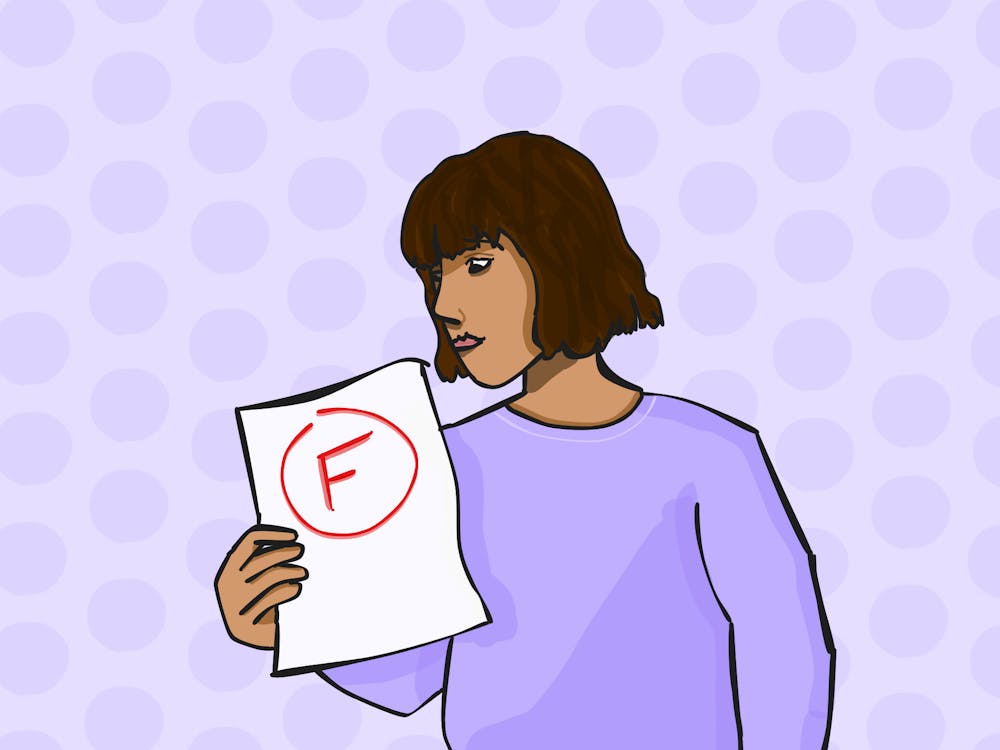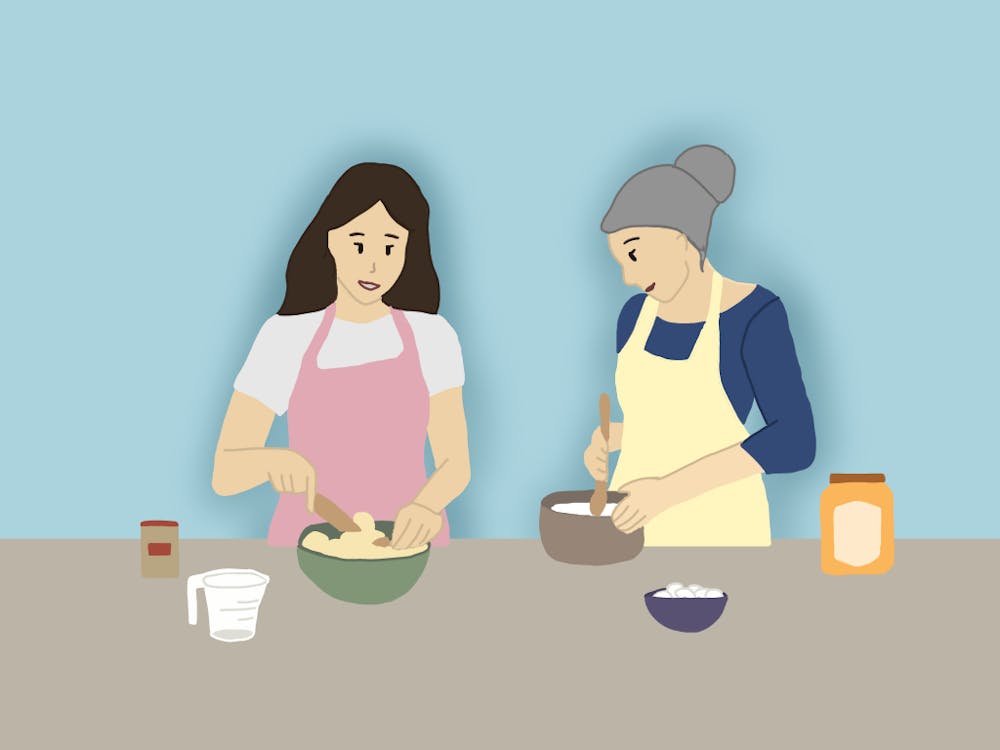As if balancing schoolwork, extracurricular activities and a social life is not enough, some University students have extra weight on their shoulders: pets. Taking walks on the Lawn with your best friend might seem like the perfect idea at first, but the responsibilities of caring for another living being quickly come into play.
Matt Kessler, an associate professor in the Office of the Vice President for Research who has a degree in veterinary medicine, decided to leave his dog at home when he went to Cornell University for his undergraduate education after considering his heavy course load and the fact that he was living off campus.
“I would [have been] potentially abandoning my dog [in] its room all day while I wasn’t paying attention, and I don’t think that’s any fair,” he said.
At the same time, however, the dog was much more Kessler’s than his parents. “I felt really kind of sad leaving my pet at home with my parents because I was really kind of the primary caretaker,” he said. “I think for the dog’s sake, it might have been better to leave him with me.”
Jeffrey Wimsatt, associate professor in the Center for Comparative Medicine and doctor of veterinary medicine, also emphasized the importance of the bond between humans and animals. “Roughly 38 percent of households [and] married couples don’t have kids,” he said. “And in many cases animals are becoming kids.”
Furthermore, pets have been used as intermediaries with people who are having trouble talking to others, he said, citing the example of the Oklahoma City bombing. The victims were surprisingly able to relate to a woman’s pet monkeys. “Animals pick up on people’s pain and approach them,” he said. On that note, he said it is possible that a student feeling estranged from the University community might feel better with a pet by his or her side.
Though students living in dormitories are not permitted to have pets other than small fish, some students living off Grounds have chosen to bring their pets to Charlottesville. Second-year Engineering student Devin Brown said his pet cockatoo, known as Coq or Coxanne — because it is impossible to know the sex of a cockatoo without a DNA test — is often a source of companionship. During the drive home for Winter Break, the cockatoo sat on Brown’s shoulder the entire trip. Bird, which is yet another name for the pet, is also extremely personable, Brown said, and squawks loudly if it is left alone. It was invited to the Browns’ Christmas dinner, during which it walked around the table and squawked at the guests.
In addition to the birds’ friendly nature, Brown recommends pet cockatoos to college students for other reasons, as well. For instance, in the rare occasion that a bird’s owner would be unable to care for it — such as an emergency stay at the hospital — the bird is conditioned to live for a long period of time without food or water, Brown said.
Chinchillas, however, are a completely different story. Second-year College student Jennifer Mak said she bought her chinchilla, Twishy, through Craigslist last year from a couple who did not have the time to care for her anymore. This high-maintenance pet must be given dust baths so its fur does not mat up, Mak said.
“Dust is basically volcanic ash — they sell [it] — and you dump it into a little bathhouse, and let them roll around in it,” she said. “It’s really cute, really messy.”
Adding to the mess, Twishy sometimes finds the walls extremely appetizing, Mak said. “My dad doesn’t like her because she chews up the siding on the walls,” she said. Luckily, Mak’s apartment in Charlottesville has remained unscathed.
Another potential problem that Mak could run into is if Twishy were to fall ill. “Not many vets know how to take care of exotic pets,” she said, adding that she would need to call a chinchilla breeder for help.
But even for all of the care and hard work, Mak said she does not regret getting Twishy. “You look up the perfect pet for you: how much care they need, how much you’re willing to commit,” she said.
Because a college student’s level of commitment to a pet may fluctuate, Kessler said he does not think it is the best idea to bring a pet to school. He added, however, that if the owner has bonded with the pet, he thinks it is best for them to stay together if possible. “I don’t think it’s as stressful as leaving them home alone, like abandoning them,” he said.
But if a University student brought his or her pet to school, and then needed to leave it at home all day, the pet would be subject to the same amount of neglect, both Kessler and Wimsatt said.
“Say you have it at home, but there’s no one there to look after it. You’re not really doing that for the good of the pet,” he said. “That’s, I think, a problem that a lot of students get into.”
While the University does not have a specific policy concerning bringing pets on Grounds — and people do so — Wimsatt said it might not be advisable. “Class changing, crowds of people around you, you don’t want a dog who’s territorial,” he said. “What you’re really getting is really how educated students are themselves.”
Even when he attended veterinary school, Wimsatt said he saw cases of animal neglect. Because all veterinary students needed to have pets, they were often forced to bring them to school, Wimsatt said. The pets, however, could not be taken inside the veterinary school — so as to avoid disease — and were usually stuck in a student’s car.
“It was fine perhaps for a while,” he said. “At lunch they’d run back and take them for a walk. Suppose they have an exam in the morning though, and the temperature rises up to even the 70s. If the sun’s on the car, all of a sudden you have a crisis because that animal’s going to get hyperthermic.”
When it comes down to it, there are many considerations regarding bringing a pet to Charlottesville, Kessler and Wimsatt both said.
“Responsible pet ownership is more than just feeding it — it’s a lot more,” Wimsatt stressed. “I think, more importantly for students, it’s understanding what responsibility is. It’s more than just giving them a pat at night and feeding them. Obviously that’s not ideal.”






